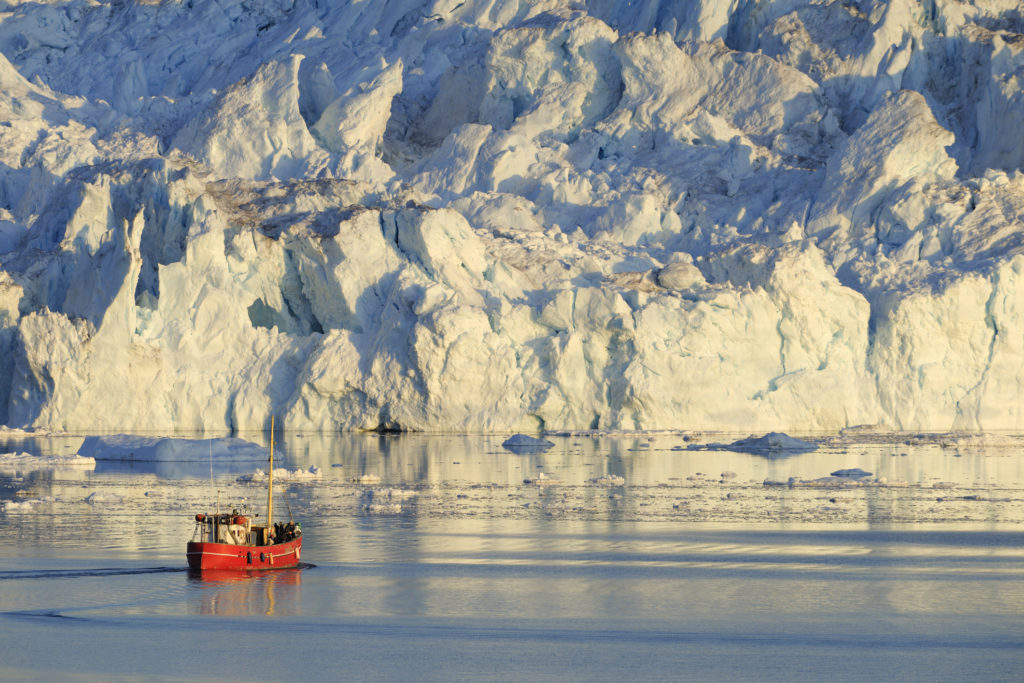Nathan Gardels is the editor-in-chief of Noema Magazine.
The fires raging across the Amazon rainforest this week riveted the attention of most of the world leaders at the G-7 summit in France. They worry that stewardship of the “lungs of the planet” has fallen into the sovereigntist hands of Brazil’s development-oriented president, Jair Bolsonaro. But it was Greenland that caught President Donald Trump’s attention.
It turns out that the U.S. president actually does believe in global warming to the extent the thawing of that autonomous Danish territory’s permafrost and ice-locked seas is real enough to open up once-inaccessible shipping lanes and territory for the exploitation of natural resources, including key rare-earth minerals. Other strategic powers, Russia and China, have taken notice as well — though neither has sought to purchase the place.
Global warming, it appears, may be turning the Arctic into yet another front of the new Cold War.
Paradoxically, it is the deep-rooted transnational sensibility of the tiny North Atlantic nations which surround or control the coveted zones that is the best hope for avoiding future conflict by major powers.
Throughout the last decade, writes Fabrizio Tassinari of the European University Institute’s School of Transnational Governance, there have been repeated attempts to establish claims in the Arctic, such as the 2007 Russian scientific expedition that planted a flag on the North Pole’s seabed. As U.S. Secretary of State Mike Pompeo framed the issue to the Arctic Council earlier this year: “Do we want the Arctic Ocean to transform into a new South China Sea, fraught with militarization and competing territorial claims?”
“So far,” notes Tassinari, “multilateral arrangements have helped avert escalation. Over the past two decades, the Arctic Council has grown into the premier venue for high politics and a vast array of policy issues in the region. Testifying to its global significance, 13 non-Arctic countries have gained observer status in it, including China, India, Japan and South Korea. Partly in response to Russia’s flag-planting exploit, Denmark initiated the 2008 Ilulissat Declaration, where the five Arctic littoral countries committed ‘to the orderly settlement of any possible overlapping claims’ on contentious issues such as the delineation of the outer limits of the continental shelf.”
Denmark’s “active internationalism” that guides this approach, says Tassinari, was forged in the wake of the end of the last Cold War when it successfully collaborated with other nations in the Baltic region to defuse potential superpower conflict while linking up with civil society groups to clean up the heavily polluted sea.
“Geography and the changing climate makes interdependence inevitable” in the Arctic, Tassinari observes. Especially when it comes to the consequences of a warming atmosphere that affect everyone, the smallest nations that long ago learned they must cooperate with others to survive and thrive may indeed have something to teach the big powers, which imagine they can go it alone and seek to make the geopolitics of the 21st century a zero-sum game.





